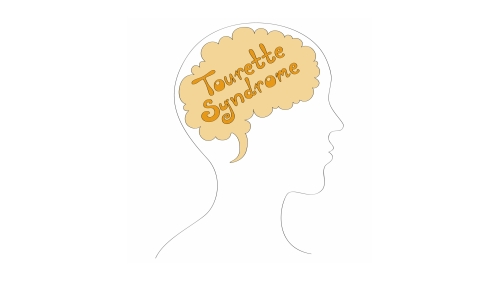
Tourette Syndrome Clinic
About Us
The Tourette Syndrome Clinic is an outpatient specialty clinic at Rutgers-GSAPP, focusing on the treatment of children, adolescents and adults with Tourette (TS) Syndrome and associated conditions such as anxiety, OCD, and ADHD.
The Tourette Syndrome Clinic was developed in partnership between Rutgers GSAPP and the NJ Center for Tourette Syndrome (NJCTS). It is estimated that 1 in 100 individuals have TS or another tic disorder, and very few resources are available to assist them. Through this partnership with NJCTS, we have created specialized treatment programs to address the needs of individuals with Tourette Syndrome and their families. While providing a unique, hands-on learning experience for advanced graduate students, we also strive to increase awareness of TS in the professional community.
Our clinic therapists are advanced doctoral students from the GSAPP clinical and school psychology programs who are trained and supervised by Director Dr. Amanda Ferriola, PsyD, who is a licensed psychologist with expertise in TS and common associated conditions.
Our clinic specializes in providing diagnostic assessment and cognitive behavioral therapy (CBT) with a focus on evidence-based interventions.
Our clients are referred from NJCTS, the Rutgers community, and the surrounding communities, schools and human service agencies. They consist of children, adolescents, adults with tics, and the parents and other family members of individuals with TS.
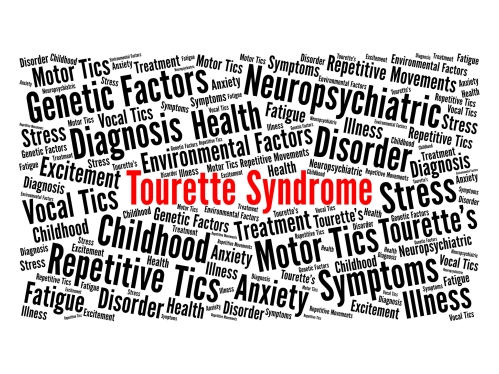
What is Tourette Syndrome?
Tourette Syndrome is an inherited neurological disorder characterized by tics, which are repeated involuntary movements and sounds such as blinking, headshakes, while body movements, grunting, sniffing, or barking. In a few cases, tics can include uncomfortable/painful movements or inappropriate words and phrases. Symptoms usually begin in early childhood and peak in pre-adolescence. For some, tics show significant reductions throughout adolescence. For others, tics remain into adulthood.
Other challenges can accompany tics. Some children experience social difficulties due to tics. Also, many children with tics can have co-occurring conditions, including obsessive compulsive disorder (OCD), attention deficit disorder (ADHD), learning disabilities (LD), difficulties with impulse control, rage attacks, anxiety, depression, sleep disorders and body-focused repetitive behaviors (e.g. hair-pulling, skin picking).
For more information:
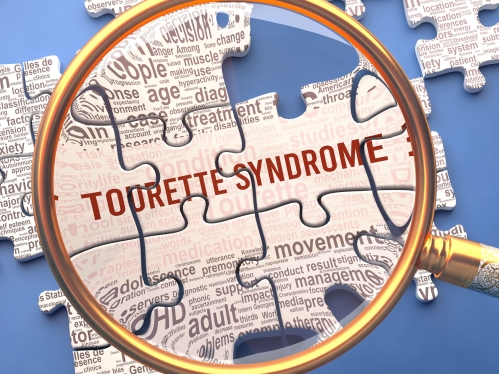
Clinical Services
Individual and Family Therapy
The Tourette Syndrome Clinic offers individual and family therapy for individuals affected by Tourette Syndrome, emphasizing evidence-based treatments for TS and related conditions. All of our therapists are trained in Comprehensive Behavioral Intervention for Tics (CBIT), which includes Habit Reversal Training (HRT), as well as cognitive behavioral therapy for common comorbid conditions such as ADHD, OCD, ASD, and anxiety and mood disorders. Individual and family therapy may also include supportive, psychoeducational, and skill-building interventions (e.g., social skills training).
Social-Emotional Skills Groups for Children and Teens with Tourette Syndrome
The Tourette Syndrome Clinic offers socio-emotional skills groups for school-aged children and teens. These groups typically begin in February each year.
There is a growing body of research indicating that the day-to-day challenges of living with tics and TS can have long-term effects on a child’s social-emotional functioning. Many children may experience anxiety, develop negative self-perceptions, are teased and bullied, and avoid social situations as a result of their tics.
In response to these challenges, the Rutgers TS Program has developed a 10-week program that aims to help children build resilience and develop the skills that they need to better navigate life with tics. The program is based on the research-supported principles of cognitive-behavioral therapy (CBT) and is uniquely designed to help youth:
- Learn about tics in a developmentally appropriate way,
- Build confidence,
- Identify and managing difficult thoughts and feelings
- Navigate the various social issues that often come along with having tics, such as talking to others about tics and responding to teasing
Additionally, the groups provide a supportive environment for children and adolescents to meet peers with tics, discuss their experiences living with the condition, and give and receive advice. Past group members have enjoyed speaking freely about their tics while learning practical strategies for living with tics in a fun and interactive manner.
This 10-week program typically begins in February each year. If you are interested in having your child participate, please contact the TS Program for more information and/or to get yourself on the list for the next cycle of groups, (848) 445-6111, ext. 40150.
Supportive Services
The Tourette Syndrome Clinic also offers a variety of additional supportive services including:
- Diagnostic evaluation
- Consultation on TS and associated disorders for practitioners, physicians, educators and students
- Assistance with referrals for physicians, and access to additional resources and services for the TS community.
- In-service presentations
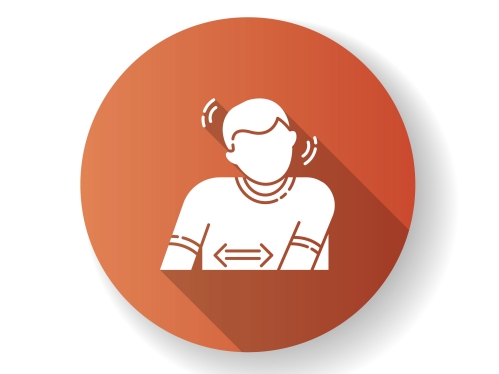
Therapies
Cognitive Behavioral Therapy
The TS Clinic at Rutgers specializes in providing cognitive behavioral therapy, a structured, goal oriented approach focused on developing coping skills, and modifying problematic thoughts, feelings, and behaviors. CBT is applied to the treatment of many conditions including, but not limited to, tics, anxiety, OCD, ADHD, depression, challenging behaviors, body focused repetitive behaviors, and social skills development.
- Individual and family based
- For children, adolescents, and adults
- Teaches and develops coping skills for
- Feelings:Identifying feelings, triggers, managing physical symptoms
- Thoughts:Identifying maladaptive thoughts, challenging and restructuring thoughts, increasing self awareness, using realistic/positive thinking, problem solving
- Behaviors:Behavioral practice, gradual exposure to fears/challenging situations, being behaviorally active, functional behavioral intervention plans
- Focused on decreasing problem behaviors, increasing helpful behaviors, and increasing confidence and competence
- Utilizes a structured approach with between session practice and follow-up
Comprehensive Behavioral Intervention for Tics (CBIT)
Comprehensive Behavioral Intervention for Tics (CBIT) is a structured evidenced-based non-medical intervention for tics based on cognitive behavioral therapy. CBIT is for children, adolescents and adults. CBIT works on one tic at a time to help individuals learn tic management strategies through three main components:
- Increasing awareness of the tic and the urge to tic (awareness training)
- Using a competing behavioral response when the urge to tic is felt (competing response)
- Making adjustments to daily activities that help to reduce the tics
The goals of CBIT are:
- Reduce the symptoms of the tic and tic urge
- Develop tic management strategies
- Boost social confidence and self-efficacy
CBIT is a combination of “Habit Reversal Training” (HRT) and functional behavioral assessment/intervention (FBA/I). HRT involves awareness training and developing a competing response. Functional assessment/intervention involves first identifying situations that precede/trigger tics, and responses to the tics after they occur that can make them worse. Second, it involves using this information to develop strategies for modifying the environment to reduce tics.
More information on CBIT
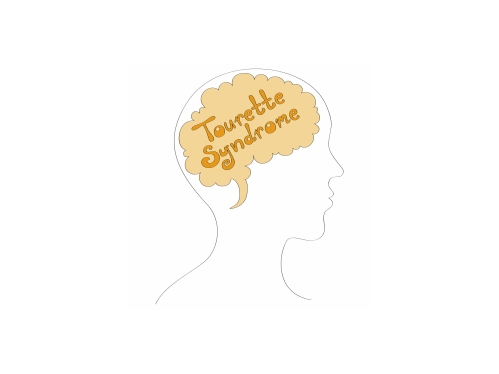


Research
The Tourette Syndrome Clinic is involved in ongoing research related TS. Recent research efforts have focused on program evaluations of our TS social emotional skills groups, as well as the NJCTS Tim Howard Leadership Academy https://njcts.org/teamup/ The Tourette Syndrome Clinic also continues collaborations with various clinical, medical, and research entities, particularly the Rutgers Genetic Study (TIC Genetics) see below.
TIC Genetics Study: Rutgers University with support from the New Jersey Center for Tourette Syndrome (NJCTS) is involved in the TIC Genetics study to better understand the genetics of Tourette Syndrome.
TIC Genetics is funded by the National Institute of Mental Health (NIMH) in the USA. This grant is a direct result of work of the New Jersey Center for Tourette Syndrome (NJCTS) Sharing Repository, funded by grants from NJCTS Center of Excellence, which demonstrated the group's ability to recruit subjects, collect and distribute DNA samples, and publish in high profile scientific journals including the New England Journal of Medicine.
The Tourette International Collaborative Genetics (TIC Genetics) Study includes scientists and clinicians specialized in Tourette Syndrome (TS) from more than 20 sites across the United States, Europe, and South Korea. The goal of this international study is to identify genetic (inherited) factors that play a role in causing TS and comorbid disorders such as Obsessive-Compulsive Disorder (OCD) and Attention-Deficit/Hyperactivity Disorder (ADHD). We are gathering information from approximately 2000 persons who either have TS or are related to someone with TS, in order to make this research possible.
If you would like to participate in this study, or would like more information please contact NJCTS at (908) 575-7350.
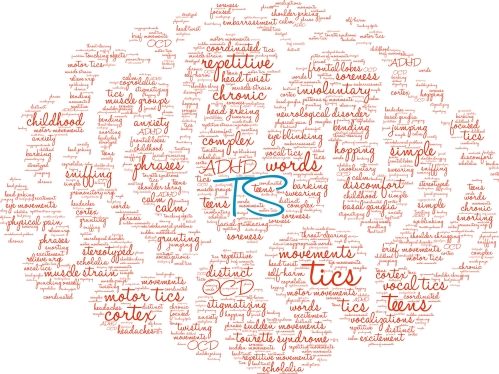
Additional Resources
Information on Tourette Syndrome including webinars, referral networks, and general information:
Information on Comprehensive Behavioral Intervention for Tics/ Habit Reversal Training
Information on the Rutgers TS Genetics Study
Please note these are informational only. Inclusion of these links should not be considered direct referrals or endorsement of these sites.
Our Team
The Doctoral Student Clinicians are an enthusiastic team of students from the doctoral programs in clinical and school psychology PsyD and PhD programs at Rutgers University. The high quality of the Rutgers programs, along with the intensive level of training and supervision provided, allows students to become experts in the evaluation and treatment of Tourette Syndrome and its co-occurring disorders. The students are the future practitioners for individuals with TS, a specialized area of psychological care with alarmingly few experienced practitioners accessible to the community. The students’ ability to provide relief and assistance to families in need has built the reputation of the Rutgers Tourette Syndrome Clinic, allowing it to become a premier location in New Jersey for the behavioral treatment of TS-related issues.
Our 2025-2026 TSC Doctoral Student Clinicians
Linnea Lampinen
Mckenna Louth
Genta Kukaj
Amanda Faison
Caitlin O'Connor
Dr. Amanda Ferriola, PsyD - Clinical Director of the Tourette Syndrome Clinic.
Dr. Ferriola is a licensed psychologist in New Jersey and Pennsylvania with expertise in the evaluation and treatment of children, adolescents and adults with Tourette Syndrome (TS) and common co-occurring conditions including anxiety, OCD, ADHD, depression, and behavioral disorders. She also has subspecialties in the areas of school psychology, crisis intervention, social-emotional learning, integrative primary care, and comprehensive psychoeducational evaluation.
Dr. Ferriola is a Rutgers alumnus (Rutgers University, GSAPP). At GSAPP, she received her doctorate in School Psychology, completed clinical training at the Tourette Syndrome Program, and received the Robert Weitz award for her dedication and willingness to work in the interest of professional psychology and the people it serves. Dr. Ferriola is a NJ-certified school psychologist, supervises psychoeducational assessments through CPS, and sees patients within the group private practice, Caring Cove, in Chatham, New Jersey. In her current role as Clinical Director of the TS Clinic, she oversees the operations of the clinic while providing training and clinical supervision to doctoral student clinicians in the program.
Contact
To reach the Tourette Syndrome Clinic, please call or email us and leave a message. Our phone coordinator will get back to you within a few days to answer any questions you may have about our program, and/or begin the process of scheduling an initial evaluation session.
For More Information, contact:
The Tourette Syndrome Clinic
Center for Psychological Services
Graduate School of Applied and Professional Psychology
Rutgers, The State University of New Jersey
41 Gordon Road
Piscataway, New Jersey 08854
Phone: (848) 445-6111 ext. 40150
Email: tsc@gsapp.rutgers.edu
To get involved with New Jersey Tourette Syndrome community, or to gain more general information about Tourette Syndrome and current TS-related events being held in New Jersey, contact the New Jersey Center for Tourette Syndrome at (908) 575-7350 or visit their informative website: http://www.njcts.org/.
